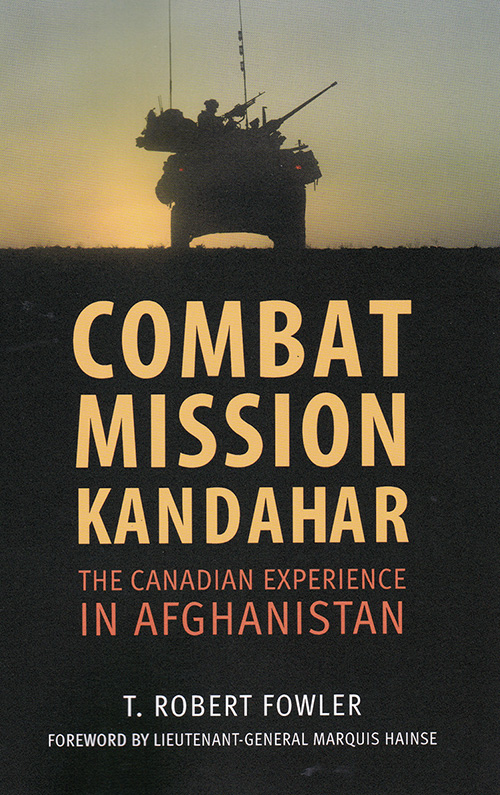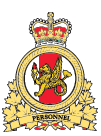Book Reviews

Combat Mission Kandahar: The Canadian Experience in Afghanistan
by T. Robert Fowler
Toronto: Dundurn, 2016
271 pages, $21.99
ISBN: 978-1-4597-3516-3
For more information on accessing this file, please visit our help page.
Reviewed by Karen P. Page
Combat Mission Kandahar: The Canadian Experience in Afghanistan: the title alone intrigued me. As a result of my experience in an international support role in Afghanistan in 2011, I have always been curious to learn more about the experiences of fellow Canadian Armed Forces (CAF) members who were directly involved in the combat mission. This book presented an opportunity for me, as it does for any reader. In his preface to Combat Mission Kandahar, T. Robert Fowler stated that he hoped his book would “help Canadians gain a better understanding of the challenges their men and women faced in Afghanistan and how well they carried out their duties.”1 That he chose to include recounts of personal experiences lends an element of oral history that breathes life into the topic, while still respecting historical aspects of the mission.
Combat Mission Kandahar is divided into two parts; the first provides a brief history of the conflict and the second relays personal experiences of seven military personnel. For Fowler, one of the challenges was that it was difficult to obtain official information that wasn’t severely redacted, and much of what Canadian troops did in Kandahar is hidden in what is termed as the “Fog of War.”2 As a result, Fowler used open sources and interviewed military personnel who had participated in the combat mission to write this book.3
The first part begins with two chapters which provide a very brief history of the Afghan conflict, Canada’s involvement in the Afghanistan mission from 2001 to the end of the official combat mission in July 2011, and it introduces Counter Insurgency Warfare to situate the reader into the Afghan environment. The second part provides seven accounts of personnel whose duties took them ‘outside the wire,’ which significantly increased the risk of injury or death, as these duties placed them directly in dangerous situations and districts without the benefit of barriers and guards.4 Although he does not indicate the number of soldiers with whom he spoke, Fowler clearly states that the seven “stories” were selected “with no other criteria than they each had different duties while in Afghanistan.” This is summed up with the sub-title “Seven Soldiers. Seven Military Specialties. Seven Stories.”5
The seven stories were from personnel who ranged in rank from corporal to captain, and who were involved in diverse roles in the Afghanistan mission. Each of the seven interview chapters provides a brief summary of the type of operations: counter-insurgency; reconstruction; psychological operations; explosive ordnance disposal; mentoring; reconnaissance; and infantry operations. His writing style is engaging, and the reader becomes immersed in each of the individual stories. It is suggested, however, that the recounts of experience provide but a glimpse of what it must have been like for the individuals involved. In my experience, military personnel tend to normalize the situations they encounter while on deployed operations. As a minute example, many Canadians left the Kandahar Airfield with t-shirts that sported the expression “only a rocket attack stops a workout” which reflects how rocket attacks became commonplace and little more than an inconvenience, despite the significant threat that they presented. Therefore, it is likely that the accounts convey but a snippet of the stress, danger, and conditions faced by the soldiers. What I particularly liked about each story is that Fowler provided a quick synopsis of post-combat service comments for the interviewees. Most touching, for me, is the story of Corporal François Dupéré, whose indomitable spirit following severe injuries sustained from an improvised explosive device is indicative of willpower, courage, and enthusiasm for life.
A comment was made in a previous review by Craig Mantle that all the interviewees were male, for which Fowler, in his response to the review, indicated that “(he) would have very much liked to have included a female soldier, particularly a medical technician.” 6 From my perspective, the combat mission and experiences are not a gender issue. That the selected stories were only from males does not detract from the value of the recounted experiences. If I were to make a change to the book, it would be a simple addition of the names of the personnel killed during the combat mission.7 Reference is made in Combat Mission Kandahar to some personnel who lost their lives as a result of their mission. While comment on each and every life and experience is beyond the scope of the book, a list of the names of all 158 CAF personnel who lost their lives to the combat mission would recognize the sacrifice of each and every one, and it would be a tribute to their friends and families.
Fowler writes in an engaging manner. Ultimately, he achieved his intent by providing a greater understanding of the challenges military personnel faced in Afghanistan, and the commitment with which they performed their duties through a glimpse into the experiences of seven personnel. In my opinion, he took it further through depicting the courage, spirit, and tenacity of the interviewees. Combat Mission Kandahar is an excellent read, for both a military and civilian audience, and is highly recommended.
Lieutenant-Colonel (Ret’d) Karen P. Page, CD was a Logistics Officer in the CAF from 1980 to 2014. In addition to her Canadian postings, she served in Geilenkirchen, Germany and deployed to Croatia, Bosnia and Herzegovina, Camp Mirage, Afghanistan and Cyprus. While in Afghanistan from July to December 2011, she was the J8 FINCON with the international staff at Command Kandahar Airfield.
Notes
- Robert T. Fowler, Combat Mission Kandahar: The Canadian Experience in Afghanistan. (Toronto: Dundurn, 2016), p. 11.
- Robert T. Fowler, Author’s personal website; available at http://www.trobertfowler.com/blog; accessed 13 July 2017.
- Robert T. Fowler, Combat Mission Kandahar…, p. 16.
- Ibid., p. 63.
- Ibid.
- Craig Leslie Mantle, Book Review: T. Robert Fowler, Combat Mission Kandahar: The Canadian Experience in Afghanistan. (Toronto: Dundurn, 2016), p. 271. Available at http://canadianmilitaryhistory.ca/review-of-t-robert-fowlers-combat-mission-kandahar-by-craig-leslie-mantle/ , accessed 11 July 2017.
- Website: iCasualties, Operation Enduring Freedom, Canadian Casualties; available at; http://icasualties.org/OEF/Nationality.aspx?hndQry=Canada; accessed 11 July 2017.







